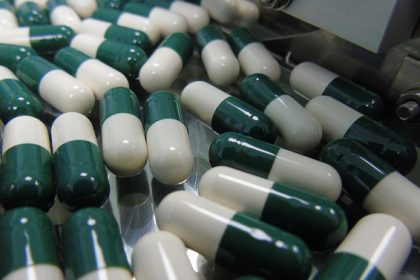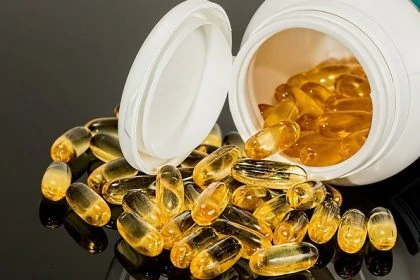In the case of a dispute about an employee‘s invention in the pharmaceutical sector, the development of an ‘extended use’ product was in focus. The German Arbitration Board stated royalty rates for pharmaceutical products with or with expired active ingredient patents. This is because the active ingredient patent determines the market exclusivity.
 Usually the royalty rate for a complex product can reach the level of the maximum royalty rate possible for this product market. A single license rate, on the other hand, is often in the range of half the maximum license rate and even lower.
Usually the royalty rate for a complex product can reach the level of the maximum royalty rate possible for this product market. A single license rate, on the other hand, is often in the range of half the maximum license rate and even lower.
In the pharmaceutical sector, however, there are other aspects to consider. This is because, in the opinion of the Arbitration Board, the active substance is the founding element of a drug’s market exclusivity.
However, if this active ingredient patent has already expired, the complex license rate for a drug complex cannot be in the range of the maximum license rate. This was formulated by the German Arbitration Board of the DPMA as a non-official guiding decision.
Background of this decision
Among other things, the royalty rate on which the employer had based the remuneration for the employee‘s invention within the scope of the value of the invention was disputed in this case. The inventor has a doctorate in pharmacy and was to evaluate the development of an ‘extended use’ product based on the standard combined preparations already available in the company.
The resulting invention was granted a European patent. Moreover, the employer uses the invention in an extended use product, which is also protected by intellectual property rights relating to the formulation, the manufacturing process for the active ingredient, the composition and, depending on the country, the cartridge. In contrast, the originally underlying active ingredient patents had already expired before the market launch of the extended use product. This product was therefore characterized from the outset by a complex of inventions without active ingredient patents. The Arbitration Board clarified that in such a case no reference can be made to the usual license rates in the pharmaceutical sector for drugs with active ingredient patents.
Excursus: German License Rates for Pharmaceuticals with Active Ingredient Patents
The Arbitration Board has previously decided that within license fees, active ingredient patents are entitled to 50 % – 70 % of the total license fee. This is also based on older estimates from the relevant legal literature. In Reimer/Schade/Schippel, for example, with reference to an agreement proposal from 1995, a licence rate for a finished medicinal product of 4 % is regarded as the upper limit. According to Trimborn, on the other hand, the royalty rates for finished drugs are usually 1 – 5 % and 0.5 – 2.5 % for pure substance inventions.
And according to Bartenbach/Volz, royalty rates of 0.5 to 2.5 % are usually paid for pure substance inventions; royalty rates of up to 10 % are therefore only paid in absolutely exceptional cases and only for the entire finished product with outstanding properties. Moreover, in practice, 60 – 80 % of such a royalty rate would be attributed to the official approval and not to the exclusion value with regard to technical teaching.
No market exclusivity through the ‘extended use’ product without active ingredient patent
Since the ‘extended use’ product in the present case was based on active substances which had already expired before the market launch, the market was only enriched by the development of a further product, but not exclusively siphoned off, the arbitration board ruled. The extended regime for this product did not create market exclusivity, was added. If the aim of the development of the product is to enter the market for ‘extended use’, which was already occupied by a competing product, then there is no market exclusivity.
Moreover, the Arbitration Board added that if the active ingredient patents of a drug have already expired before the product is launched on the market, then the product is from the outset characterised by a complex of inventions without active ingredient patents.
Therefore, the Arbitration Board was of the opinion that the complex license rate in this case could be set at a maximum of 2.5%.
Do you also need support in the field of German patent law or a licensing agreement?
Our lawyers will be pleased to advise you. Please contact us if you are interested – we look forward to your call!

Sources:
Decision Arb.Erf. 16/17 (in German)
Image:
Garak01 ~ pixabay ~ CCO License







Leave a Reply